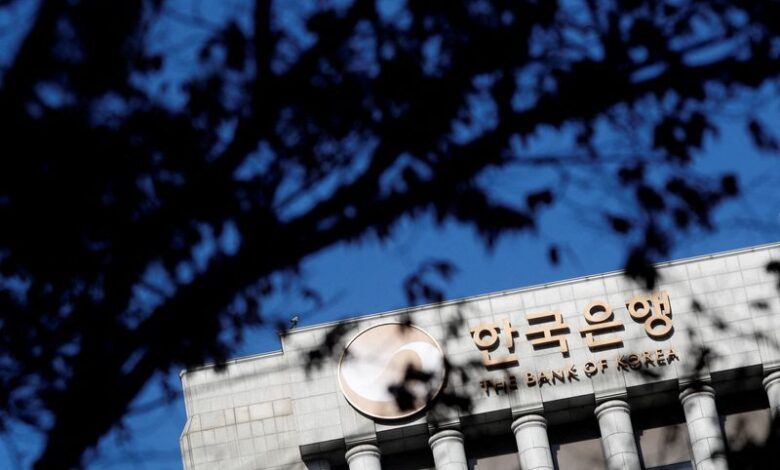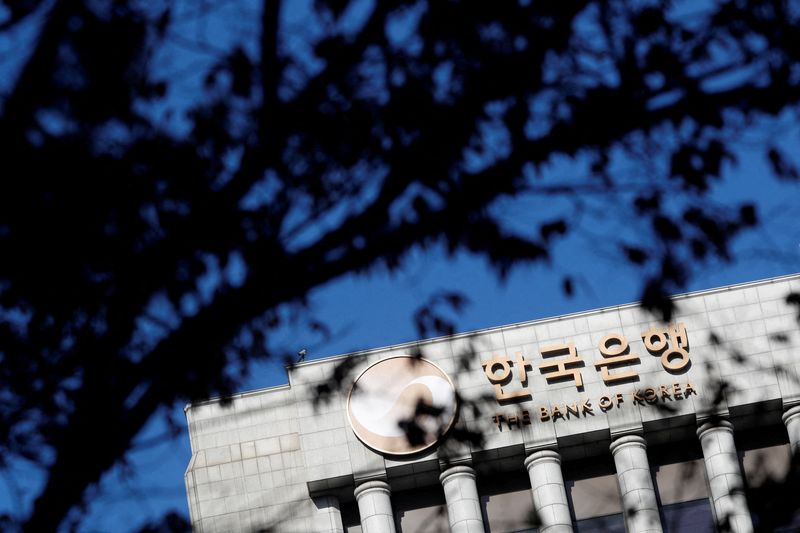Bank of Korea board member says growth, financial stability are key to rate cuts

SEOUL (Reuters) -A board member of South Korea’s central bank said economic growth and financial stability are key factors for the monetary policy board to consider as it determines the timing and pace of interest rate cuts.
“We should simultaneously consider the impact of interest rate cuts on growth and financial stability,” Hwang Kun-il, a member of the Bank of Korea’s seven-seat policy board, was quoted as saying in a quarterly policy report released on Thursday.
Slowing domestic demand is increasing the need for preemptive responses, but household debt is at a level posing financial risks, Hwang said.
Hwang added there was a need for an appropriate mix between fiscal policy and macro-prudential regulations to minimise trade-offs between the two policy objectives.
The Bank of Korea last month kept its policy interest rate at 3.50%, the highest since late 2008, but revived expectations for an imminent policy easing, which some analysts expect as early as its next meeting on Oct. 11.
The central bank’s board members were cautious last month about lowering interest rates, as they were concerned about rising risks to financial stability despite slowing inflation, minutes from the policy meeting showed.
“Financial markets are pricing in at least two interest rate cuts within this year, which is a bit excessive,” Deputy Governor Park Jong-woo said at a media briefing.

In the quarterly report, the central bank said there was high uncertainty over the outlook for the housing market and domestic demand was expected to improve gradually as higher corporate earnings and disinflation boosted consumers’ purchasing power.
On financial markets, the Bank of Korea said the probability of treasury bond yields falling sharply in the near term was small, and recent strength in the Japanese yen was unlikely to have negative impact on the Korean won or capital flows.



